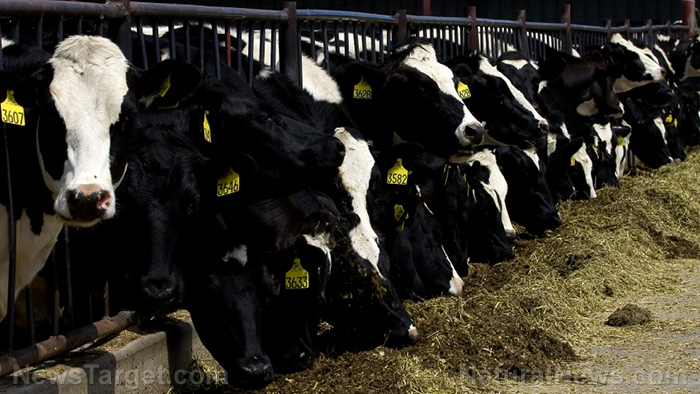
Jeroom Remmers, director of the Amsterdam-based True Animal Protein Price Coalition (TAPP), made this remark during the two-day conference that ended Tuesday, Nov. 12.
"Climate change is caused 20 percent by meat and dairy, so the producers of meat and dairy should pay for the damage they cause. It's normal [that] when I damage the window of my neighbor, I have to repair this damage. But meat and dairy processors also have to repair the damage they cause to others and in the future," he said.
Remmers added that some of the collected taxes from meat and dairy producers could be returned to consumers "to reduce prices of healthy foods like vegetables, fruits and plant-based meat," alongside "loss and damage funds."
TAPP Public Affairs and Policy Officer Willem Branten also took the stage, echoing the remarks of his boss Remmers. He explained why his organization wants "to make the polluter pay."
"We believe that COP29 and the UNFCCC [United Nations Framework Convention on Climate Change] conferences thereafter can only be successful if the closing statement includes transitioning away from animal protein over-consumption according to national or global dietary guidelines by implementing greenhouse gas emission pricing mechanisms in agri-food systems," he said.
Branten urged the European Commission, the Organization for Economic Co-operation and Development and China to "lead the way toward these harmonized pricing mechanisms." He also urged leaders of countries who attended the conference to "use at least 20 percent of their revenues for above-mentioned pricing mechanisms to finance the loss and damage fund so that we can pay for the damages done by our past consumption of meat and animal proteins." (Related: Denmark's $3.7 billion carbon tax plan to cost farmers almost $100 per cow.)
Taxing meat is never a good idea
The TAPP executive acknowledged that "the risk of backlash and reactionary response to such policies is always a possibility." He noted: "I think currently, there's the problem with there not being a clear roadmap – especially in Europe with the switching political climate. Therefore, there's also a lot of uncertainty for farmers in Europe … [alongside] calls and protests."
Even the globalist World Economic Forum (WEF) has mentioned that levying a tax on meat production is not the best idea, outlining its stance in a May 2022 article.
"Taxation is a relatively blunt instrument compared with other policy interventions, and there is often an unpredictable relationship between taxation and how behavioral change occurs," the globalist organization wrote.
"By applying a uniform tax, extensive and arguably less efficient systems would find it more difficult to absorb the tax and could be pushed out of the market – achieving the opposite result of attempts to improve sustainability by favoring larger and more efficient farms."
Ultimately, levying any form of taxes or penalties on meat is never a good idea – unless one wishes to see a repeat of the farmers' protests that rocked the Netherlands and other European countries in 2022. Emissions from meat production pale in comparison to the amount generated by Remmers, Branten and other so-called "climate activists" who often fly in private jets to countries where climate conferences like COP29 are held.
Visit GreenTyranny.news for more stories like this.
Watch Josh Sigurdson of World Alternative Media discussing the proposal to levy a tax on meat and dairy producers introduced at COP29.
This video is from the World Alternative Media channel on Brighteon.com.
More related stories:
'Meat tax' proposal highlights why people can't stand vegans.
Climate change craziness: New Zealand plans to tax FARTS and BURPS of farm animals.
Governments aiming to add taxes to all MEAT products under the guise of halting "global warming."
Sources include:
ClimateDepot.com
WEForum.org
Brighteon.com
Source link

